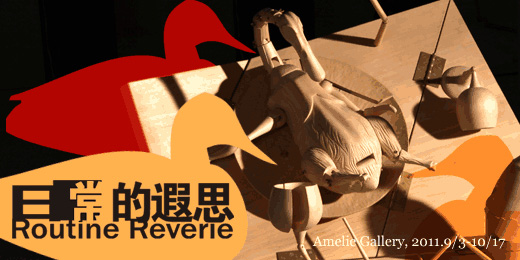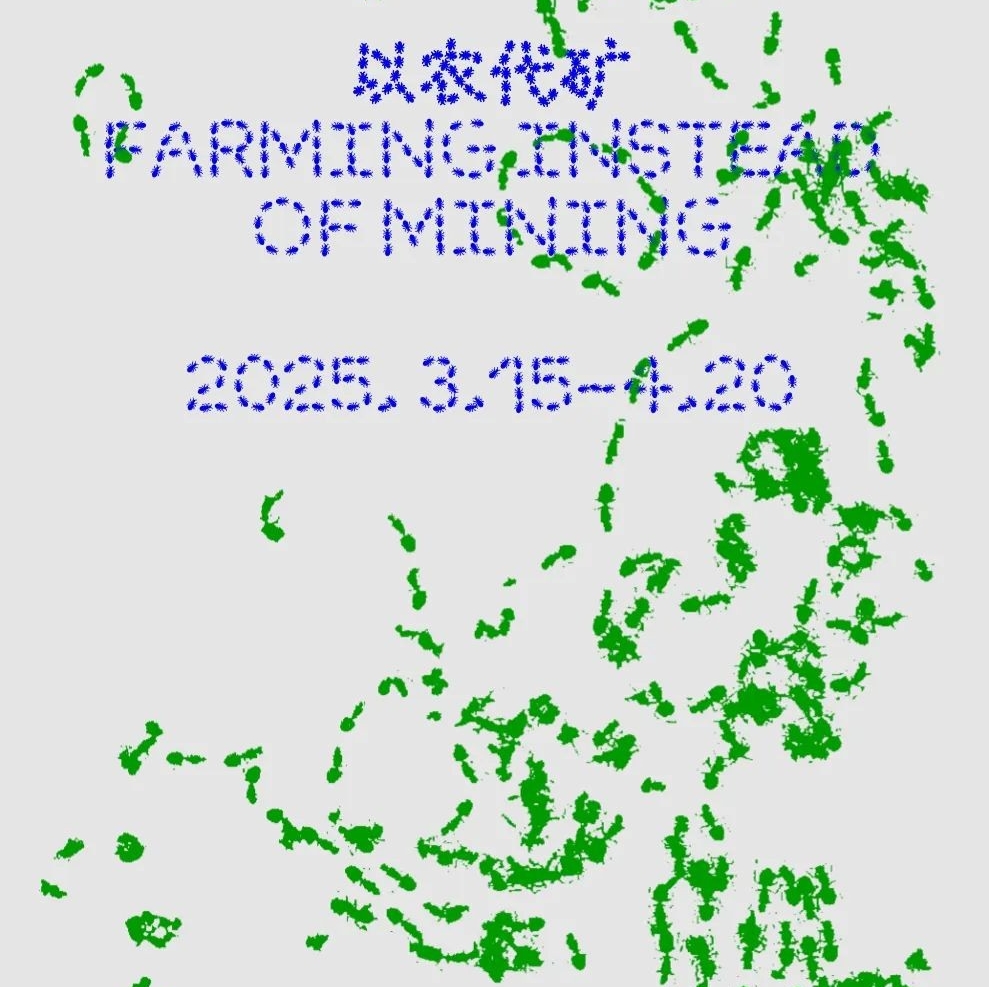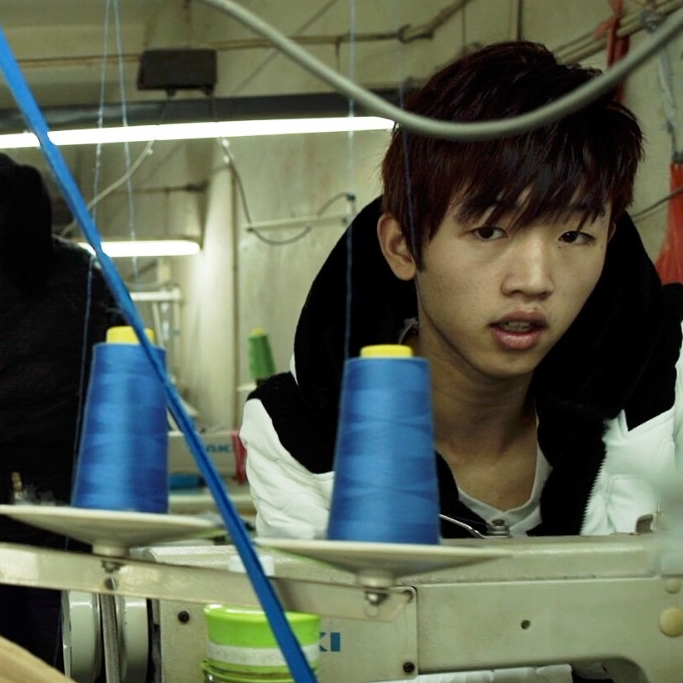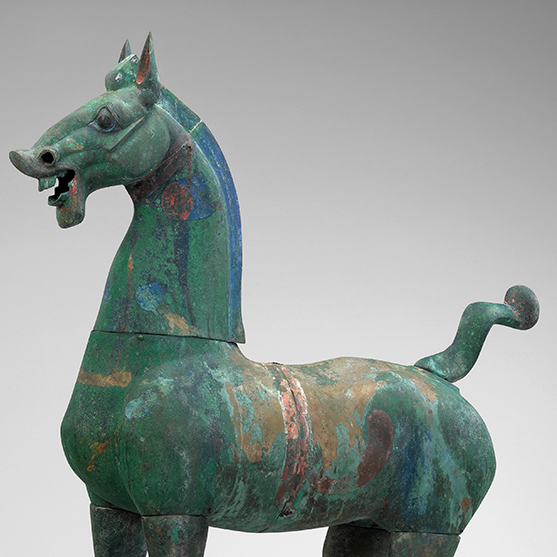Routine Reveries--Summer Curatorial Note II
by Curator Tony Chang
Artists: Liu Ruizhao, Huang Kai, Yuan Jia, Yu Ying, Su Rui, Feng Ying, Wen Yue
Duration: Sep 3rd to Oct 17th
Venue: Amelie Art Gallery, Beijing
“Just when I wanted to eat pork, the price exploded; just when I wanted to go on vacation, the high-speed trains collided; just when I wanted to go to the Palace Museum, an expert broke the relics; just when I wanted to get on the escalator, it started going backwards…” (excerpt from an internet forum). This summer has had the most troubles I can remember. Public morality is in decline, there is no trust among businessmen, the American debt crisis is followed by riots in England, and the art market is being manipulated by unscrupulous speculators. The human spirit is like so many ants dashing around on a hot wok. The omnipresent internet forums, microblogs and media outlets are like a massive warped, out-of-focus crystal mirror, distorting people’s perceptions of this world, releasing us into a strange and absurd land. I’m beginning to envy the people of ancient times, who lived isolated lives in closed-off countries, providing ample tranquility for the spirit to grow freely. The Ming dynasty book Sophisticated Humor recalls the story of a deputy county magistrate paying a visit to a country gentleman: “the official, paying a visit to the country gentleman, saw that his host did not come out, so he promptly sat down and began to snore. The host arrived, and not wanting to wake his guest, sat down and slept next to him. The guest was woken later, but seeing that his host was asleep, elected to go back to sleep himself. The host awoke, but seeing that his guest was still asleep, went back to sleep. The guest awoke at dusk, and seeing that his host was still asleep, he crept away quietly. When the host awoke, he saw that his guest was gone, so he went back into the house.” In the story, the guest and host sleep absentmindedly through the evening so as not to wake the other. In today’s world, if a deputy county magistrate visited a town, it would definitely lead to a scene of wild revelry.
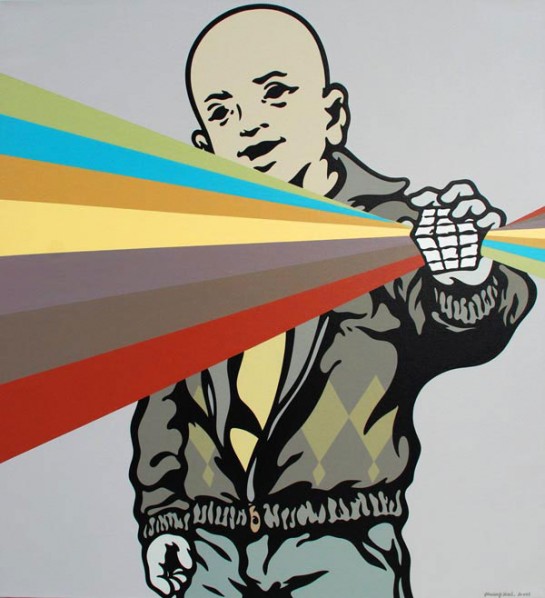
Huang Kai's Woodcut 01
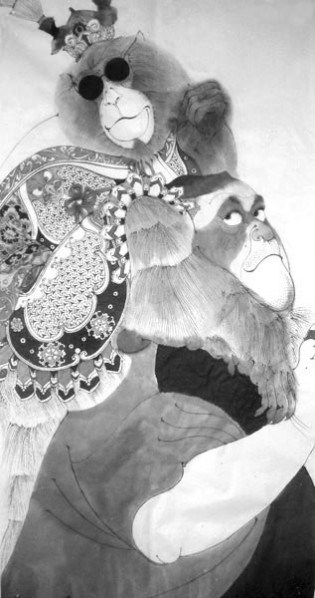
Su Rui's Work
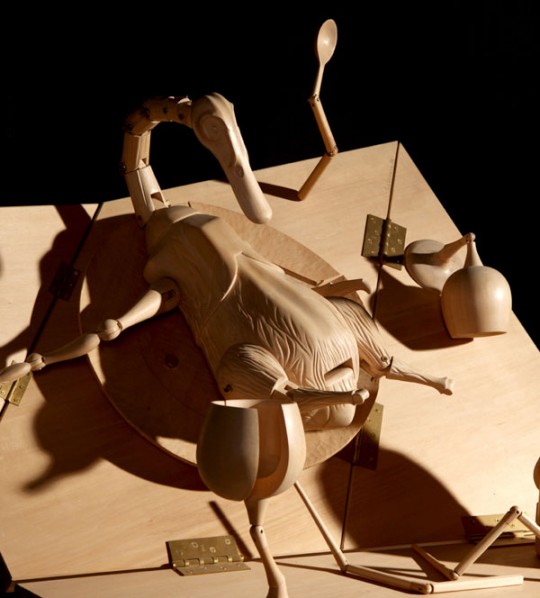
Yuan Jia's Work
The curatorial concept behind Routine Reveries is an investigation into the ways that artists enter into their own states of “absentmindedness”: how they talk to themselves and hone their preferred crafts. The vagrant who plays with monkeys (Su Rui), the deer head meditating in an absurd, surreal space (Feng Ying), the mischievous, amnesiac child (Huang Kai)… they do not see the turmoil around them as they construct their own unique artistic worlds. Yuan Jia is obsessed with the use of linden wood to create her works, and for this, she has purchased large machines and researched deeply into wood-processing techniques. She has bestowed everyday objects and animals with joints, so that they can wake up, jump, and escape human control at any time, taking on autonomy: a table with long, thin legs leads a duck on an escape, furniture jumps down from the walls, drawers are pulled out of a pig’s body. These objects are cute and fascinating like fairytales, but are also marked by the distrust and skepticism of our absurd reality.
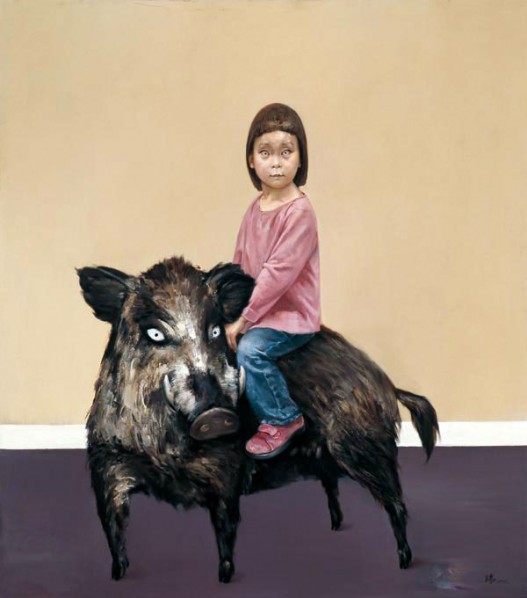
The Wildboar by Liu Ruizhao
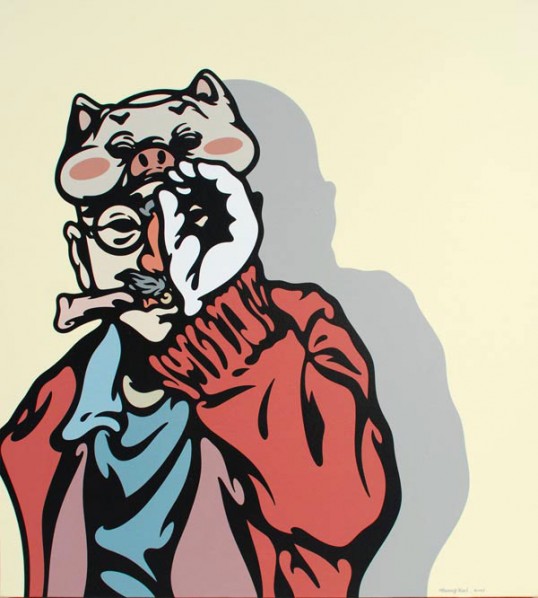
Huang Kai's Woodcut 02
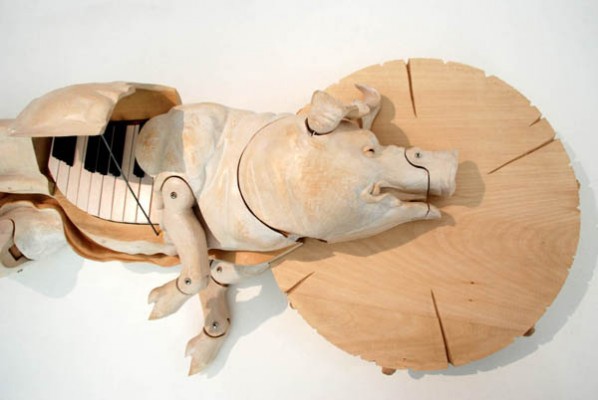
Yuan Jia's Work
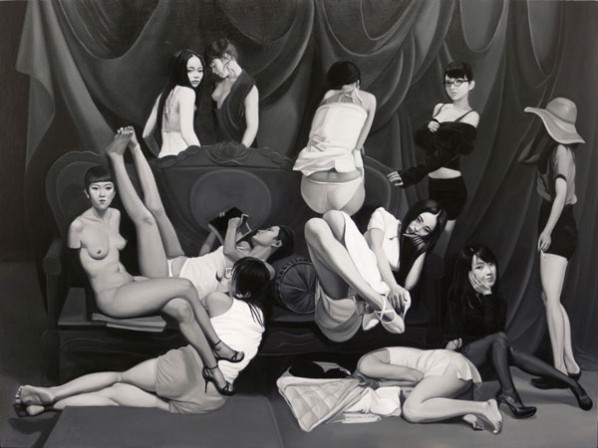
Yu Ying's Work
I have much admiration for Yu Ying’s quiet, contemplative temperament. In his work Chapel of the Body, he has painted Jesus, dolls and animals together in a search for the body’s cultural and spiritual properties. In his painting titled Shanghai Painter’ Studio, the female bodies and their postures dissect the ways in which the female bodies are enjoyed and pondered in the male-dominated field of female body painting. In talking with Yu Ying, our discussion came to a French novelist we both admire, Alain Robbe-Grillet (1922-2008). Having graduated from the National Institute of Agronomy, Robbe-Grillet spent his early years working at a laboratory for artificial insemination and hormone research in the French countryside, taking specimens from female rats every eight hours, three times a day for forty minutes. He spent his remaining time writing novels on the backs of anatomical diagrams of bulls. Robbe-Grillet believed that “The twentieth century is unstable, fluctuating, ungraspable; the outside world and the inner minds of man are all like labyrinths. I do not wish to understand this world, so I write.” This “absentminded” master focused on the microscopic world and depictions of the inner mind, like a soldier staring fixedly at a distant banner across the battlefield, with the chaos and death merely a minor distraction. As for Yu Ying, the scenes in his paintings have transcended representational depictions of reality, and are coming to form a unique path to viewing the world from the perspective of cultural research and psychoanalysis.
After splitting with his younger brother Zhou Zuoren over family matters, author Lu Xun wrote in his diary: “On this night I began eating alone in my room. This single meal is worth noting.” Broken off from the clamor of the outside world, steeped in their fantastical reveries, I hope that these artists’ spirits wander endlessly within their isolation.


